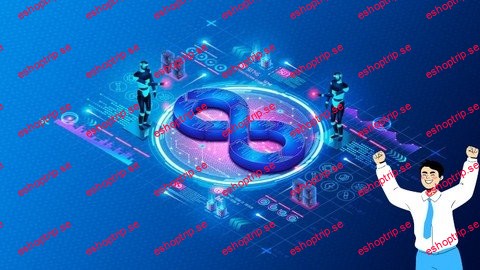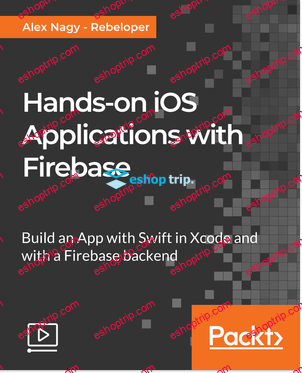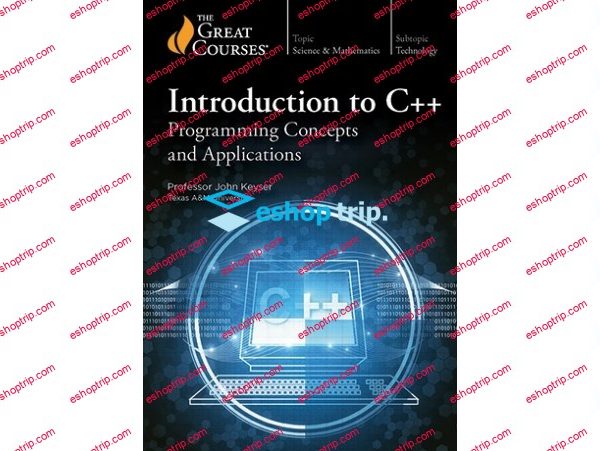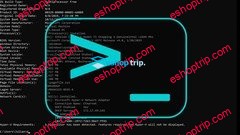Published 10/2024
MP4 | Video: h264, 1280×720 | Audio: AAC, 44.1 KHz
Language: English | Size: 1.46 GB | Duration: 2h 59m
Master the MLOps Maze: Unlock the Secrets with the Right Tools!
What you’ll learn
MLOps Lifecycle Mastery: Understand the complete MLOps process from data preparation to model deployment and monitoring.
Version Control Tools: Learn essential tools for code (Git), data (DVC), and model versioning (MLflow).
Core Skills and Frameworks: Gain proficiency in key languages (Python, Bash) and ML frameworks (TensorFlow, PyTorch).
Cloud and Deployment: Deploy ML models on AWS using Docker, Kubernetes, and CI/CD pipelines.
Monitoring and Maintenance: Monitor, manage, and maintain models in production with tools like Prometheus and Grafana.
Requirements
No prerequisites required!
This course is designed for beginners and intermediate ML engineers.
All you need is a willingness to learn and explore the field of MLOps.
Description
Welcome to “Complete Roadmap to Becoming an MLOps Engineer” — your ultimate guide to navigating the ever-evolving world of MLOps!In this course, we break down the complex roadmap of MLOps into simple, digestible steps, ensuring that you’re equipped with the right tools to streamline your machine learning workflows and thrive in the industry. Whether you’re just starting out or have some experience, this course is designed to empower you with the skills to implement scalable machine learning models in production.Why MLOps?As AI and ML are increasingly becoming integral to business operations, managing and deploying models at scale can be challenging. This is where MLOps comes in—helping bridge the gap between data science and operations. MLOps ensures that machine learning models are efficiently developed, deployed, monitored, and maintained in a reliable, automated, and scalable manner.What Will You Learn?Fundamentals of MLOps: Understand the core principles that differentiate MLOps from traditional DevOps and why it’s crucial for successful AI implementations.End-to-End Machine Learning Pipeline: Learn how to build and manage the entire lifecycle of machine learning models—from model development to deployment and monitoring.Version Control for Code, Data, and Models: Discover the best practices for tracking and versioning everything in your ML workflows, ensuring reproducibility and scalability.Continuous Integration/Continuous Deployment (CI/CD) for ML: Automate your machine learning workflows with CI/CD pipelines, and understand how to apply DevOps practices to machine learning.Model Monitoring & Retraining: Explore how to monitor models in production, track performance, and implement retraining mechanisms to ensure accuracy over time.Containerization with Docker: Master the use of Docker to create portable, reliable, and consistent environments for your ML models across platforms.Cloud & Deployment Strategies: Learn how to deploy models in real-world environments using cloud services (like AWS, GCP, or Azure) and container orchestration systems like Kubernetes.MLOps Best Practices and Tools: Get hands-on with essential MLOps tools like MLflow, Kubeflow, DVC, and more to manage the lifecycle of your models and ensure smooth collaboration between data scientists and engineers.Who Should Enroll?Aspiring MLOps Engineers: If you’re looking to transition from a traditional ML or data science role to an MLOps-focused position, this course will give you the skills and insights you need.Data Scientists and ML Engineers: If you want to learn how to scale your models from development to production while mastering automation and lifecycle management.DevOps Engineers: If you’re interested in expanding your skill set to support machine learning model deployments, monitoring, and infrastructure management.Students & Enthusiasts: Even if you’re just getting started in the world of machine learning and AI, this course will provide a strong foundation for learning how to integrate operations with ML.
Overview
Section 1: Introduction to MLOps
Lecture 1 Introduction
Lecture 2 What is MLOps ?
Lecture 3 Why is MLOps required ?
Lecture 4 Resources
Section 2: Understanding Stages of MLOps
Lecture 5 Problem Definition, Data Collection and Processing
Lecture 6 Metrics Definition, Data Analysis and Feature Engineering
Lecture 7 Model Training, Deployment and Monitoring
Section 3: Building base for MLOps
Lecture 8 Basics Tools and Skillset for MLOps- Part 1
Lecture 9 Basics Tools and Skillset for MLOps- Part2
Section 4: Tools and skills for Problem Definition
Lecture 10 Stage 1: Problem Definition
Section 5: Tools and skills for Data Collection
Lecture 11 Stage 2: Data Collection
Lecture 12 Data Collection Part 2
Section 6: Tools and Skills for Data pre-processing and Storage
Lecture 13 Stage 3: Data Pre-processing
Section 7: Tools and Skills for Metrics Definition
Lecture 14 Stage 4: Metrics Definition
Section 8: Tools and Skills for Data Exploration and Analysis
Lecture 15 Stage 5: Data Exploration and Analysis
Section 9: Tools and Skills for Feature Extraction and Engineering
Lecture 16 Stage 6: Feature Extraction and Engineering
Section 10: Tools and Skills for Model Training
Lecture 17 Stage 7: Model Training
Section 11: Tools and Skills for Model Deployment and Integration
Lecture 18 Stage 8: Model Deployment
Section 12: Tools and Skills for Model Monitoring
Lecture 19 Stage 9: Model Monitoring
Lecture 20 Congratulation! What Next ?
This course is perfect for aspiring ML engineers who want to specialize in MLOps, data scientists eager to expand their expertise into machine learning operations, and software engineers interested in building and deploying ML models. Whether you’re a beginner or have some experience in the field, this course will guide you on your path to becoming an MLOps expert. It’s also ideal for anyone passionate about mastering the end-to-end process of machine learning, from development to deployment and beyond. If you’re ready to dive deep into the world of MLOps and take your career to the next level, this course is for you!
https://anonymz.com/?https://www.udemy.com/course/complete-roadmap-to-becoming-an-mlops-engineer/










